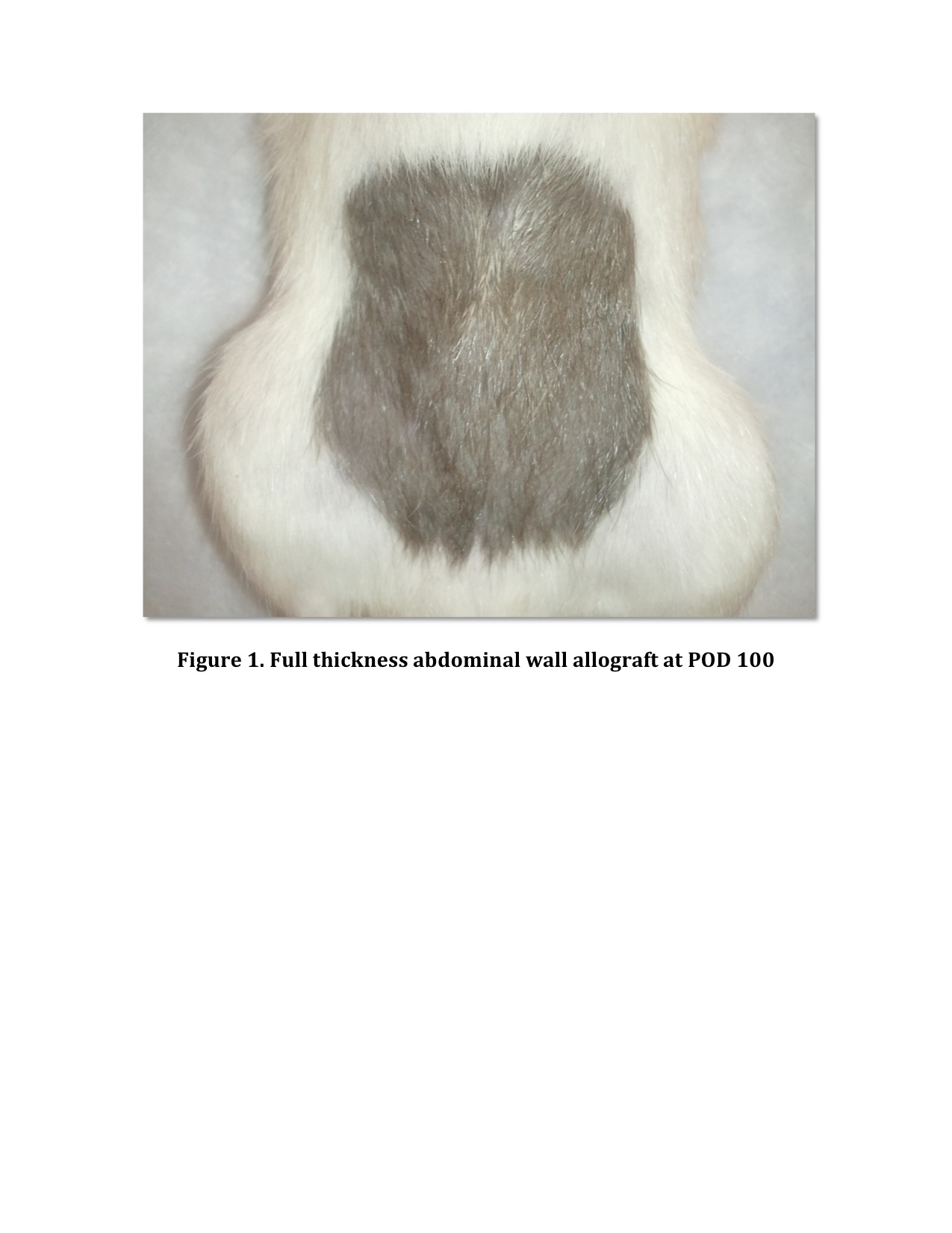|
Back to Annual Meeting Program
Development of a Reliable Model of Total Abdominal Wall Transplantation
Meghan A. Quigley, BS, Derek R. Fletcher, MD, Wensheng Zhang, MD, Vu T. Nguyen, MD.
University of Pittsburgh School of Medicine, Pittsburgh, PA, USA.
Background:
One of the most common technical obstacles in abdominal organ transplantation is closure of the abdominal wall. This difficulty, along with the recent rise in the use of composite tissue allotransplantation (CTA) to reconstruct complex musculoskeletal and soft tissue defects, has led surgeons to the notion of abdominal wall transplantation. The overall aim of our study is to evaluate the immunological effects of adding an abdominal wall graft to a solid organ transplant using a small animal model.
Methods:
To date, we have developed a novel and reliable surgical model for a full thickness total abdominal wall transplant based on a unilateral pedicle between fully MHC-mismatched rat strains. We utilize an established cuff technique to anastomose the donor’s common iliac vessels to the recipient’s femoral vessels. Three groups of animals (n=6/group) received different dosages of FK506 monotherapy – 0.25, 0.50, 0.75 mg/kg/day. The abdominal wall transplants were assessed daily for evidence of rejection by visual inspection. On POD 14, 50, 100 or at signs of acute rejection, skin biopsies were taken for H&E analysis. Assessment of donor-specific chimerism in the peripheral blood of the recipients via flow cytometry was performed on POD 14, 50, and 100.
Results:
No signs of rejection were observed in the abdominal wall transplant animals receiving 0.50 or 0.75 mg/kg/day FK506. The animals receiving 0.25 mg/kg/day FK506, however, displayed a mixed response (n=4 reached grade 3 rejection, n=1 remained at grade 1 rejection, n=1 reached grade 3 rejection but then spontaneously recovered). FACS analysis of the peripheral blood of all the animals on POD 14 and 50 did not show evidence of donor-specific chimerism.
Conclusion:
A full thickness abdominal wall graft based on a unilateral pedicle utilizing a cuff anastomosis is a technically feasible and reliable small animal surgical model. The use of 0.50 mg/kg/day of FK506 or greater results in 100% graft survival. FACS analysis shows that this acceptance cannot be attributed to the presence of donor-specific chimerism. Future plans are to utilize this model to determine the minimal therapeutic dosage to prevent rejection of both a solid organ transplant (i.e., heterotopic cervical heart transplant) in combination with the abdominal wall allograft.
Figure 1. Full thickness abdominal wall allograft at POD 100

Back to Annual Meeting Program
|







